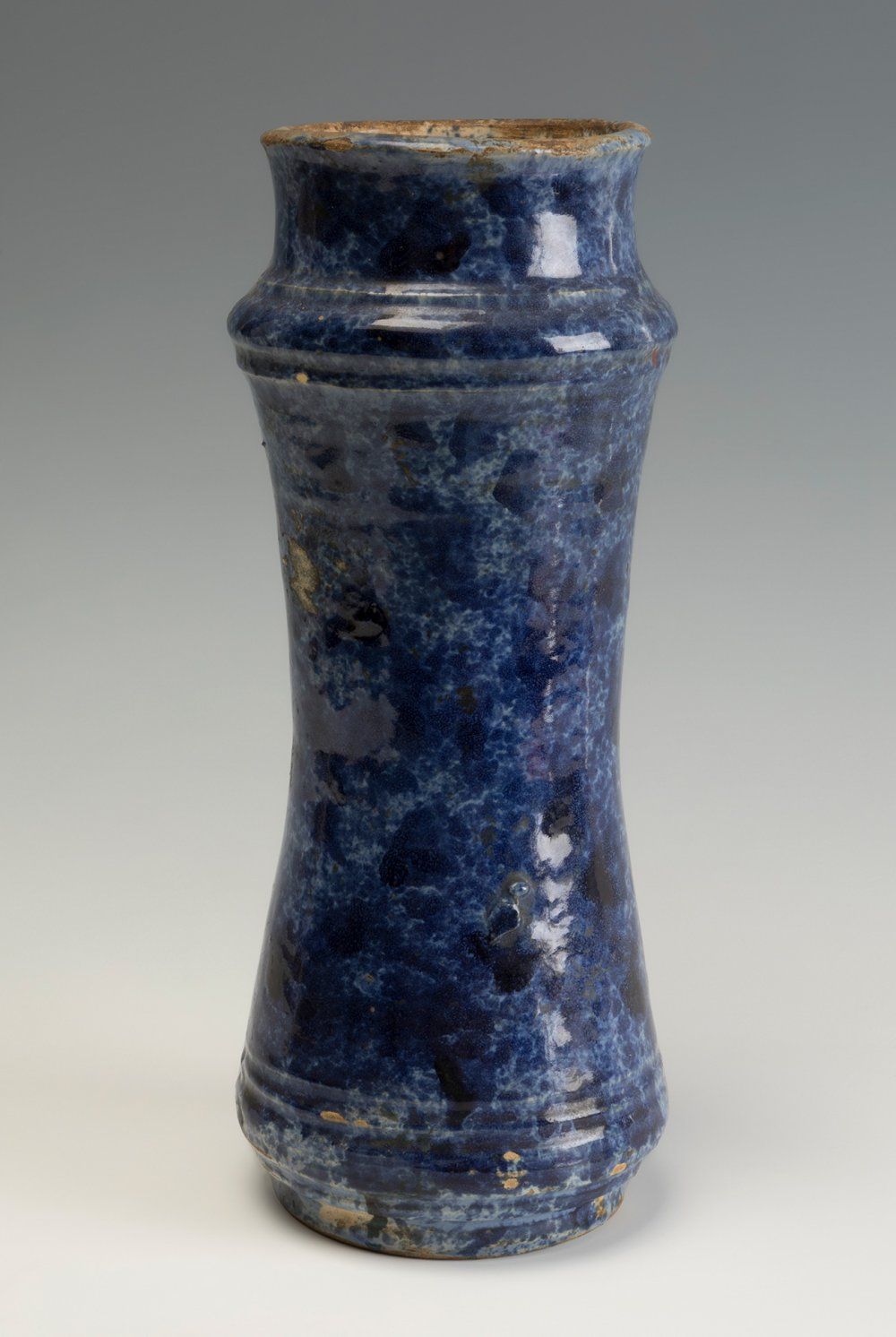Description
Albarelo, Talavera, "marbled" series, 18th century. Polychrome ceramic. It has faults. Measurements: 28.5 x 11 cm. Albarelo or pharmacy jar with a tall body and wide mouth, as is usual in this typology. Both have a cobalt blue finish. They have a shape derived directly from the Italian albarelo, with a gently curved body and a short neck, highlighted by a clean cut above the shoulders. They belong to the cultured production (as opposed to popular ceramics) made in 16th- and 17th-century Talavera, along with the marbled and sponged series. Like these, the pulverised series has its origins in the Italian influence that so marked the development of Talavera ceramics at this time, and is specifically inspired by Mannerist trompe l'oeil. Thus, the concept is based on the imitation of hard stones, such as jasper, revealing the taste for deception and artifice typical of the period. It is not a question of simulating a material that is lacking, but of imitating it for the sake of pure visual play. The imitation of hard stones, however, will be clearer in the marbled series, while the sponged series is more reminiscent of lapis lazuli, including its golden touches, although it is less illusionistic. In addition, the more stylised albarelos will be typical of these series, no longer the Arabic ones, as had been the case until then, but those of Italian influence.
7
Albarelo, Talavera, "marbled" series, 18th century. Polychrome ceramic. It has faults. Measurements: 28.5 x 11 cm. Albarelo or pharmacy jar with a tall body and wide mouth, as is usual in this typology. Both have a cobalt blue finish. They have a shape derived directly from the Italian albarelo, with a gently curved body and a short neck, highlighted by a clean cut above the shoulders. They belong to the cultured production (as opposed to popular ceramics) made in 16th- and 17th-century Talavera, along with the marbled and sponged series. Like these, the pulverised series has its origins in the Italian influence that so marked the development of Talavera ceramics at this time, and is specifically inspired by Mannerist trompe l'oeil. Thus, the concept is based on the imitation of hard stones, such as jasper, revealing the taste for deception and artifice typical of the period. It is not a question of simulating a material that is lacking, but of imitating it for the sake of pure visual play. The imitation of hard stones, however, will be clearer in the marbled series, while the sponged series is more reminiscent of lapis lazuli, including its golden touches, although it is less illusionistic. In addition, the more stylised albarelos will be typical of these series, no longer the Arabic ones, as had been the case until then, but those of Italian influence.
